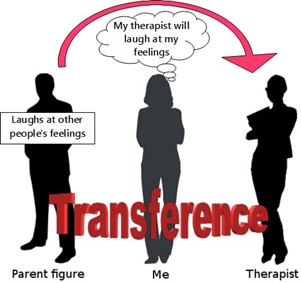The client states his assigned nurse reminds him of his very stern aunt. This statement is an example of what type of issue that can occur m the nurse-client relationship.
Transference
Countertransference
Making a judgment
Giving recognition
The Correct Answer is A
Transference is a phenomenon in which a person unconsciously redirects feelings and emotions from one person to another. In this case, the client is redirecting feelings and emotions associated with his stern aunt onto his assigned nurse. This can affect the nurse-client relationship and should be addressed in therapy.

Nursing Test Bank
Naxlex Comprehensive Predictor Exams
Related Questions
Correct Answer is C
Explanation
Explanation: SMART is an acronym for Specific, Measurable, Achievable, Relevant, and Time-bound. A SMART goal should be specific, clear, well-defined, measurable, attainable or achievable, relevant, and time-bound.
Option (a) is not specific, measurable, or achievable. It does not provide a clear target or timeline for the client's improvement, and it may not be attainable for some clients to feel less depressed after only one day of admission.
Option (b) is specific and measurable, but it may not be achievable or relevant for all clients. Increases in energy are not always a direct indicator of improved depressive symptoms.
Option (c) is specific, measurable, achievable, and relevant. A 10% reduction in the self-rating of the depression scale is a clear and well-defined goal that can be easily measured. It is also achievable and relevant as it directly addresses the client's depressive symptoms.
Option (d) is specific, measurable, achievable, and relevant. However, it is not time-bound, which means there is no clear timeline for the client's improvement. It is also not as direct or measurable as option (c).
Correct Answer is B
Explanation
The nurse has violated the mayor's right to privacy and confidentiality by disclosing his medical information to a third party without his consent. This action can lead to a charge of breach of confidentiality.
Additionally, the statement made by the nurse could be considered defamatory as it is likely to harm the mayor's reputation and could be interpreted as an accusation of a crime or moral wrongdoing. Therefore, the nurse could be charged with defamation of character. False imprisonment and batery are not relevant to the situation described.
Whether you are a student looking to ace your exams or a practicing nurse seeking to enhance your expertise , our nursing education contents will empower you with the confidence and competence to make a difference in the lives of patients and become a respected leader in the healthcare field.
Visit Naxlex, invest in your future and unlock endless possibilities with our unparalleled nursing education contents today
Report Wrong Answer on the Current Question
Do you disagree with the answer? If yes, what is your expected answer? Explain.
Kindly be descriptive with the issue you are facing.
